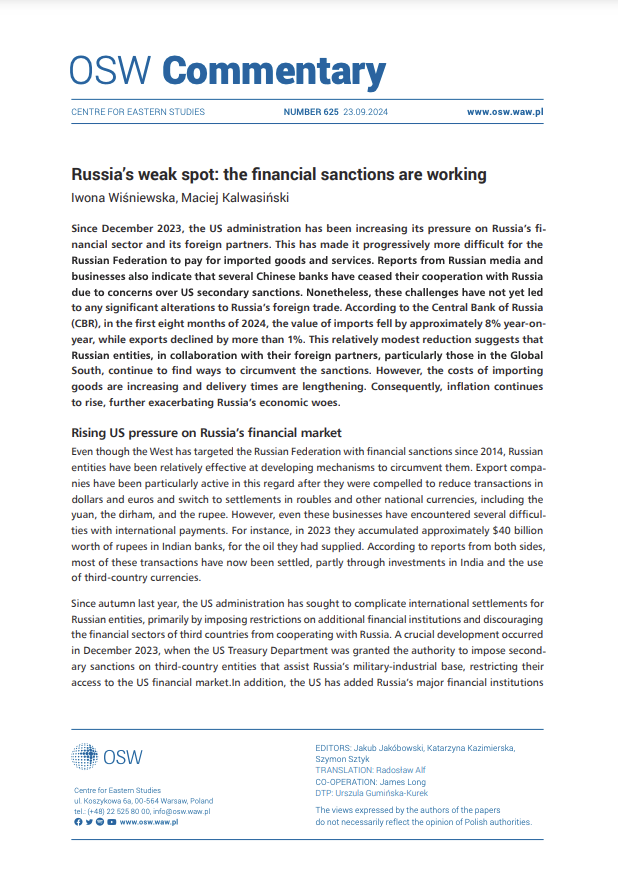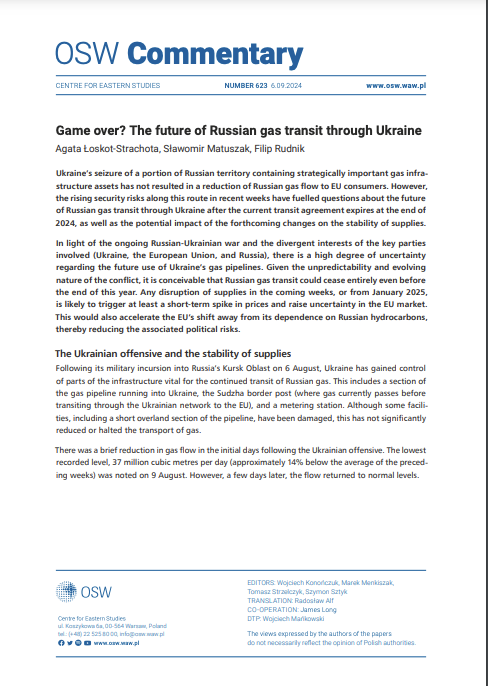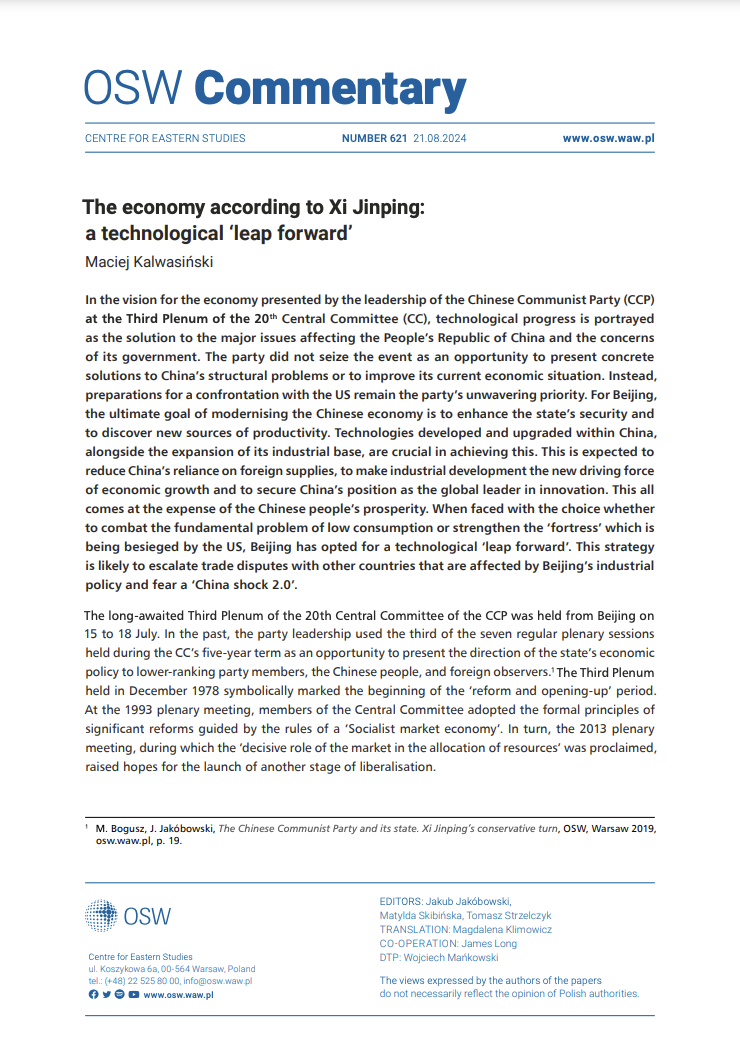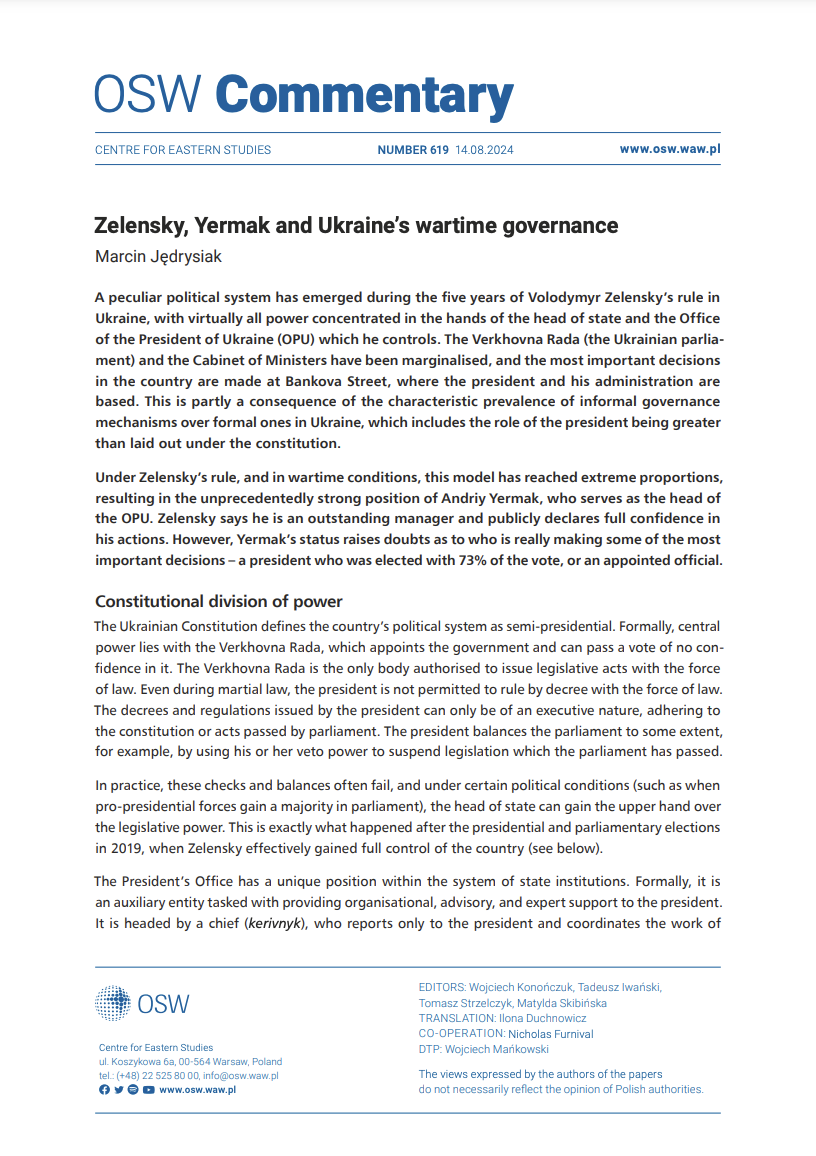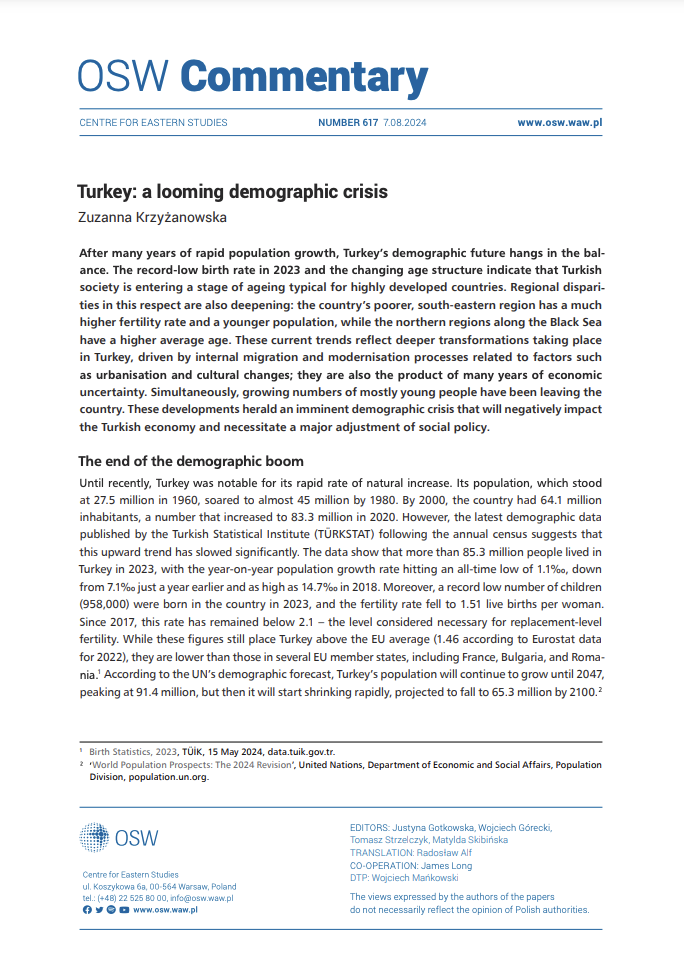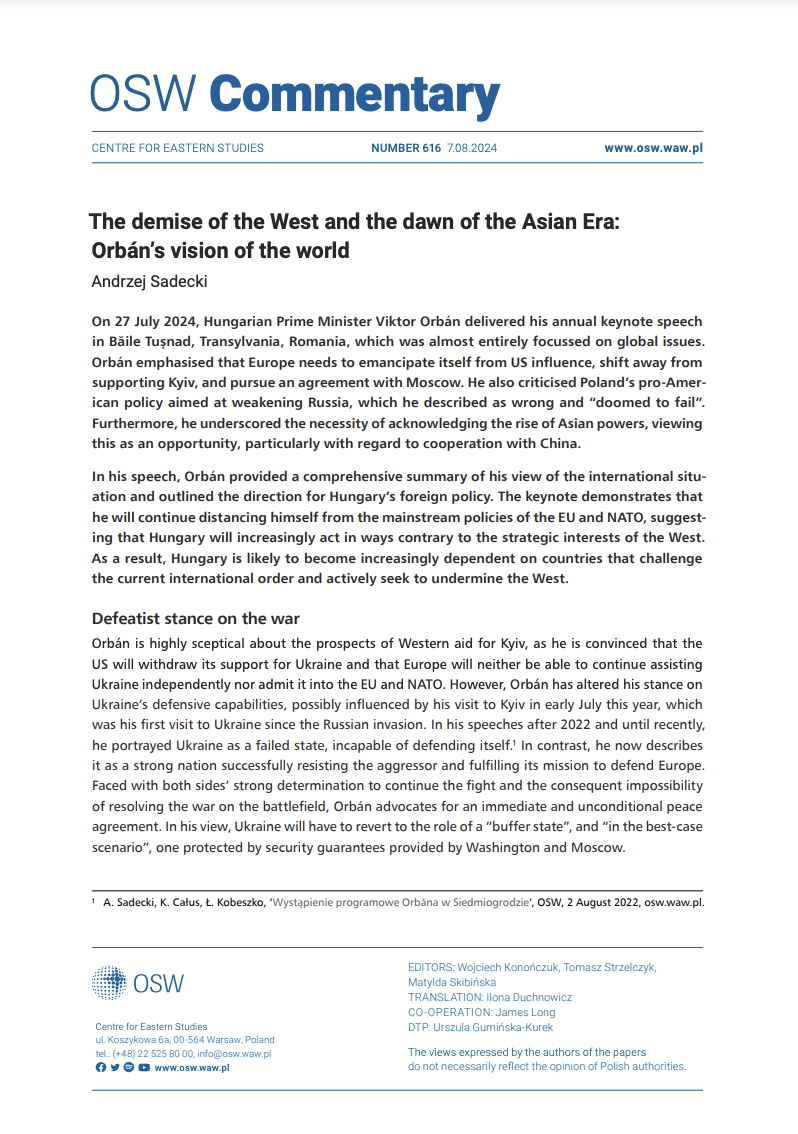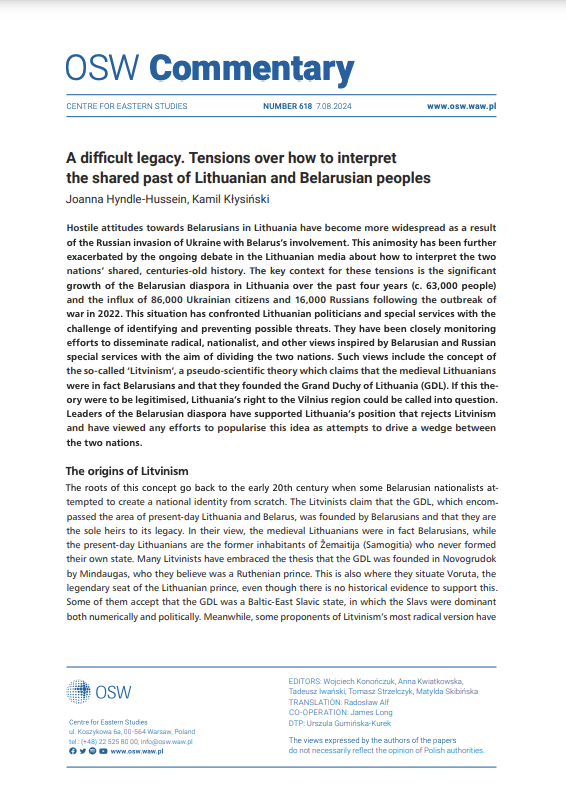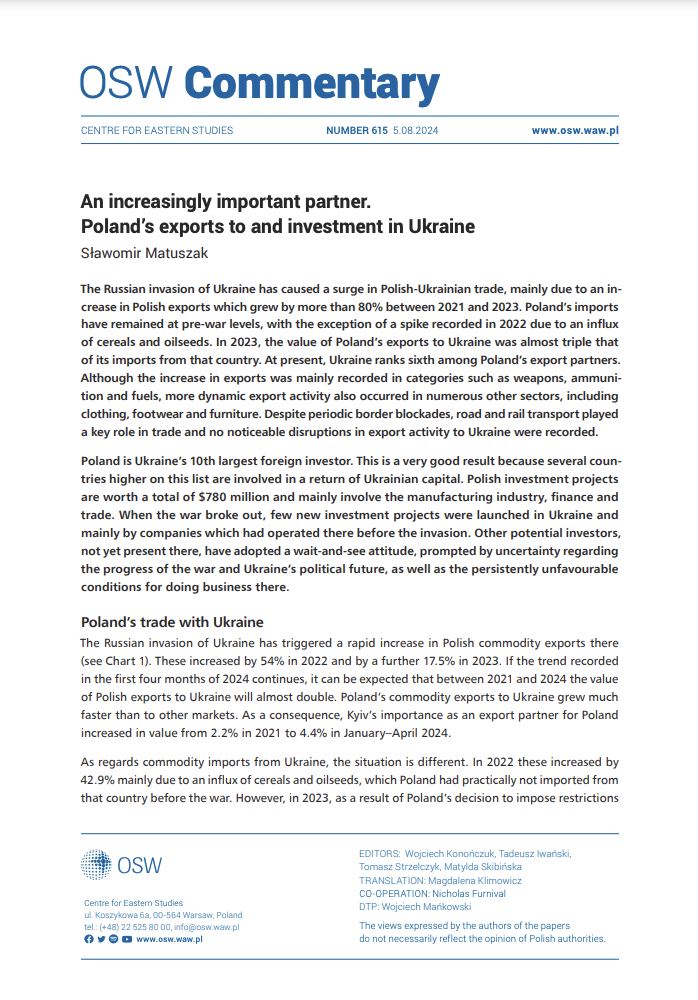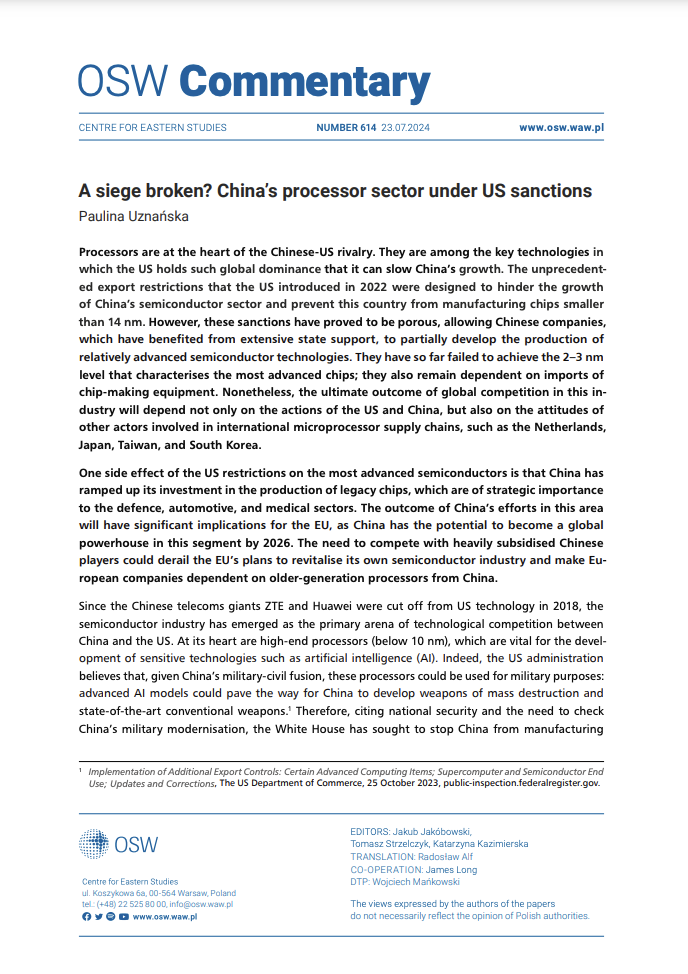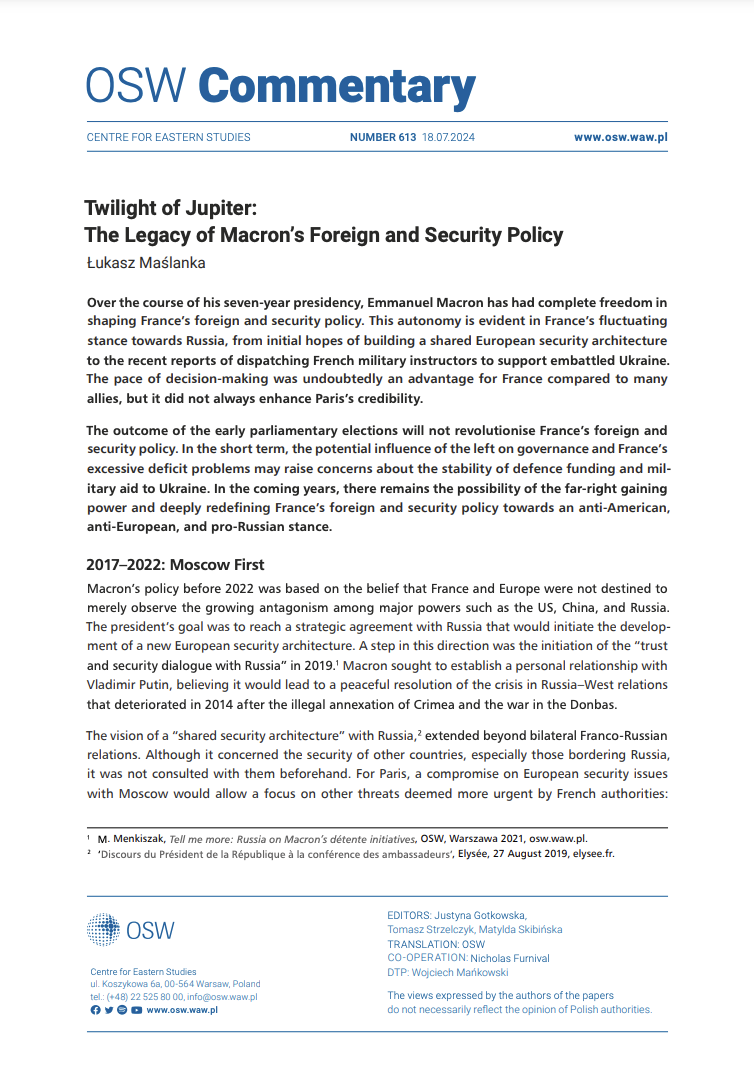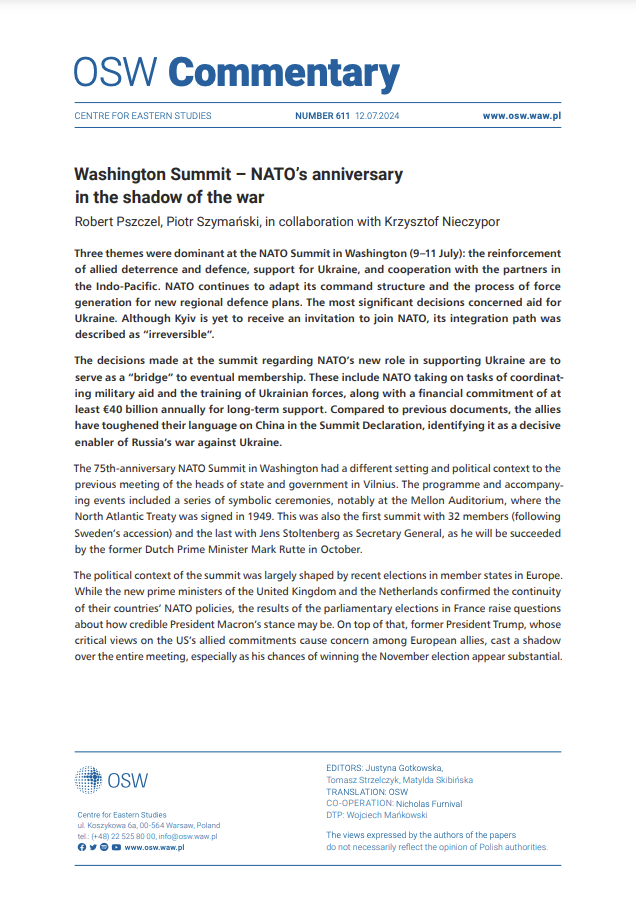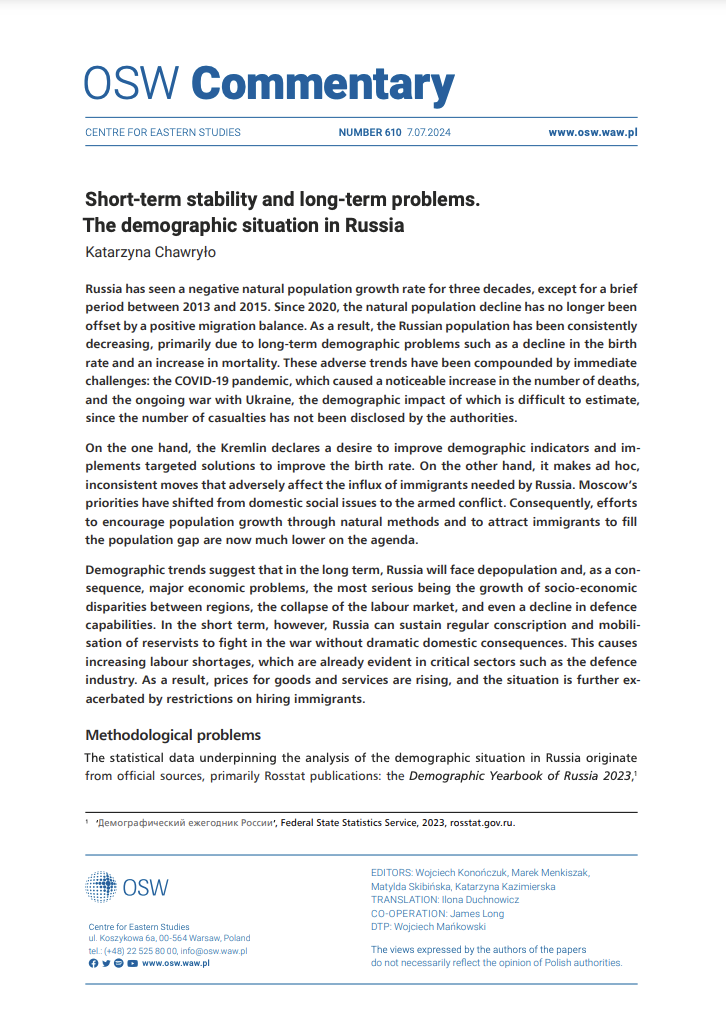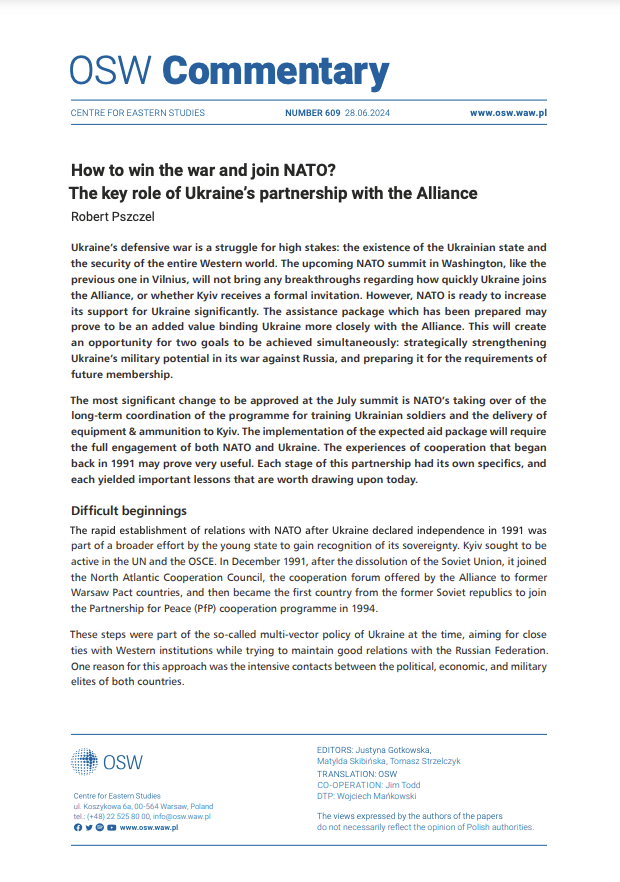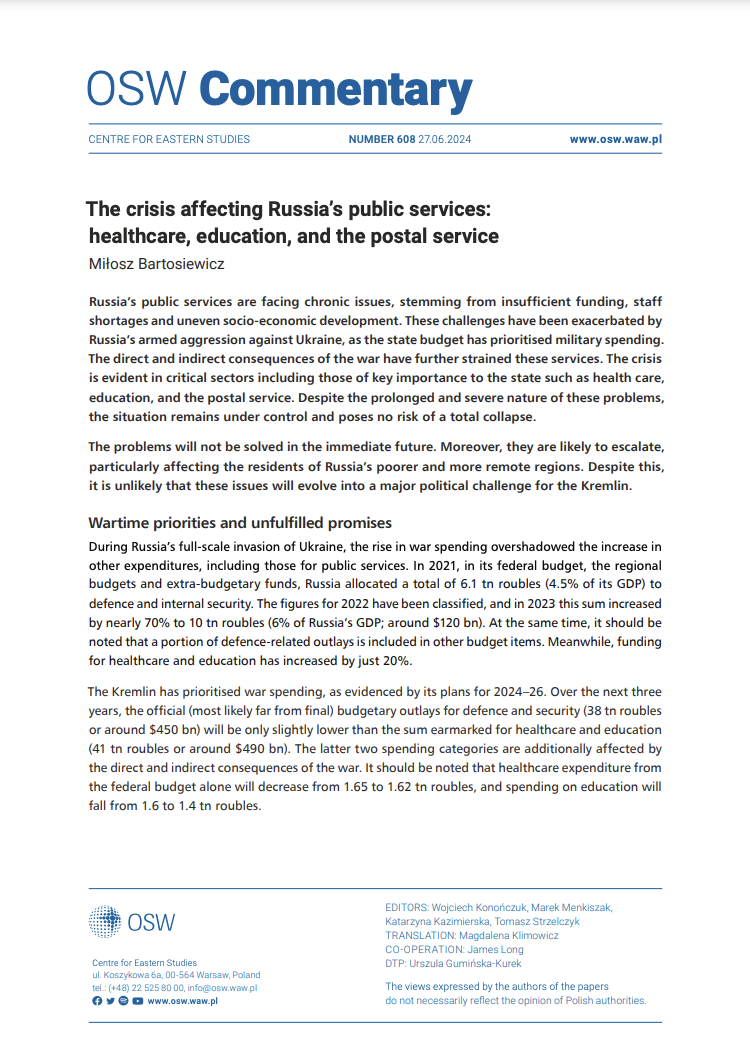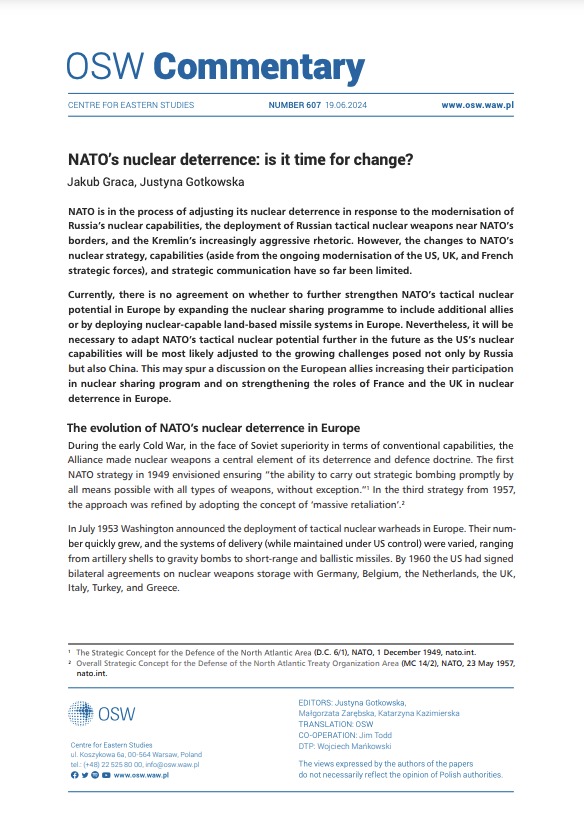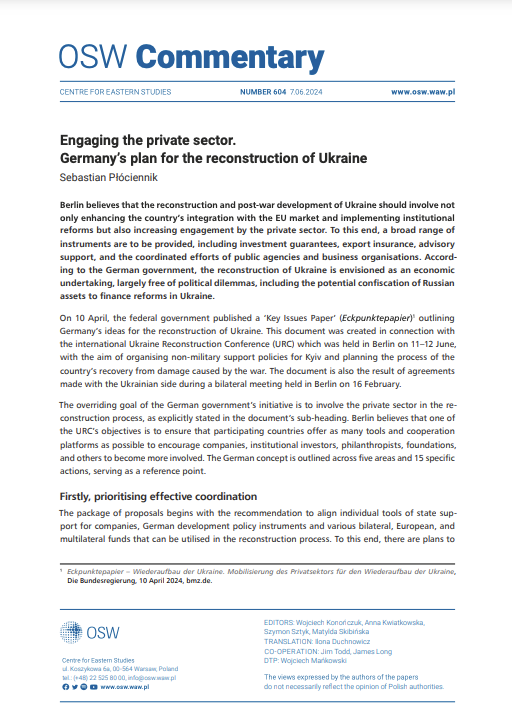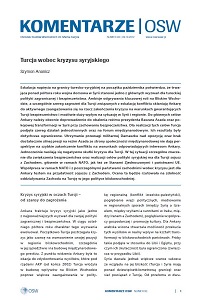
Türkiye and the Syrian crisis
Turcja wobec kryzysu syryjskiego
Keywords: war ins Syria; Turkey's role in Middle East;
The escalation of tensions on the Turkish-Syrian border in early October confirms that it is ongoing. For more than a year and a half, the civil war in Syria is one of the main challenges for Turkey foreign and security policy. Ambitions to play a key role in the Middle East, in particular, a number of threats to Turkey related to the escalation of the conflict prompt Ankara to actively engage in bringing the crisis to an end under secure conditions, i.e.: Turkey's security and as much influence as possible on the situation in Syria and the region. For the main purposes Ankara now has to bring about the overthrow of the regime of President Bashar Assad and peace transformation in Syria while maintaining security. For the implementation of these goals, Türkiye has taken a number of unilateral and international actions. Their results were limited so far. Maintaining Damascus' military advantage over the opposition and none strong enough pressure on the Assad regime from the international community does not offer prospects for a quick end to the conflict on terms that suit Ankara's interests. At the same time, the negative effects of the crisis on Turkey are intensifying. In this situation, of particular importance has an alliance for Turkey to increase security and achieve Syrian policy goals with the West, mainly within NATO, as well as with the United States and EU countries. Cooperation within NATO and with individual Western countries in the face of the crisis is for Ankara as a test of the usefulness of the alliance with the West. This rating will affect the influence of the West on Turkey in its Middle East policy.
More...
